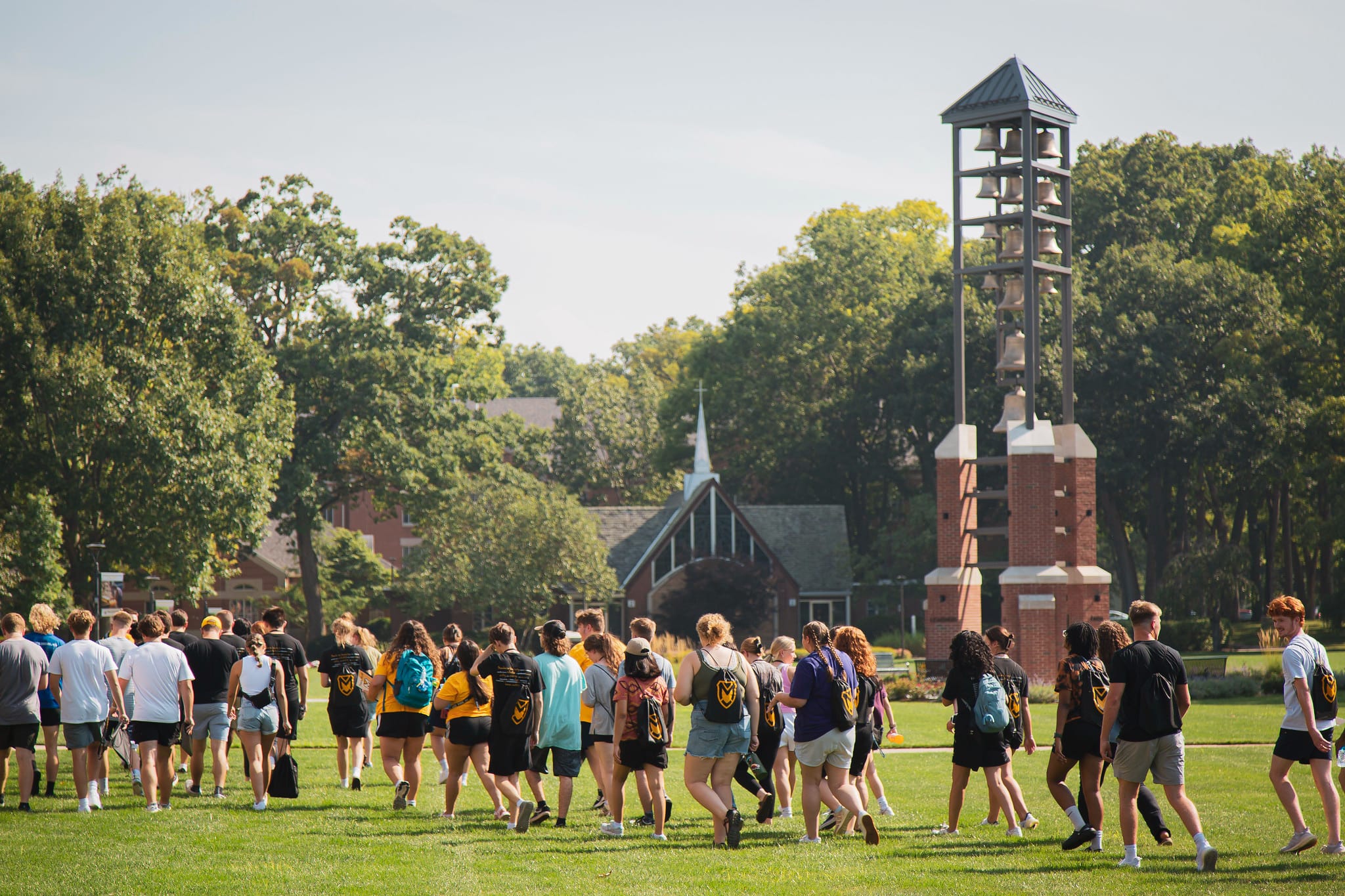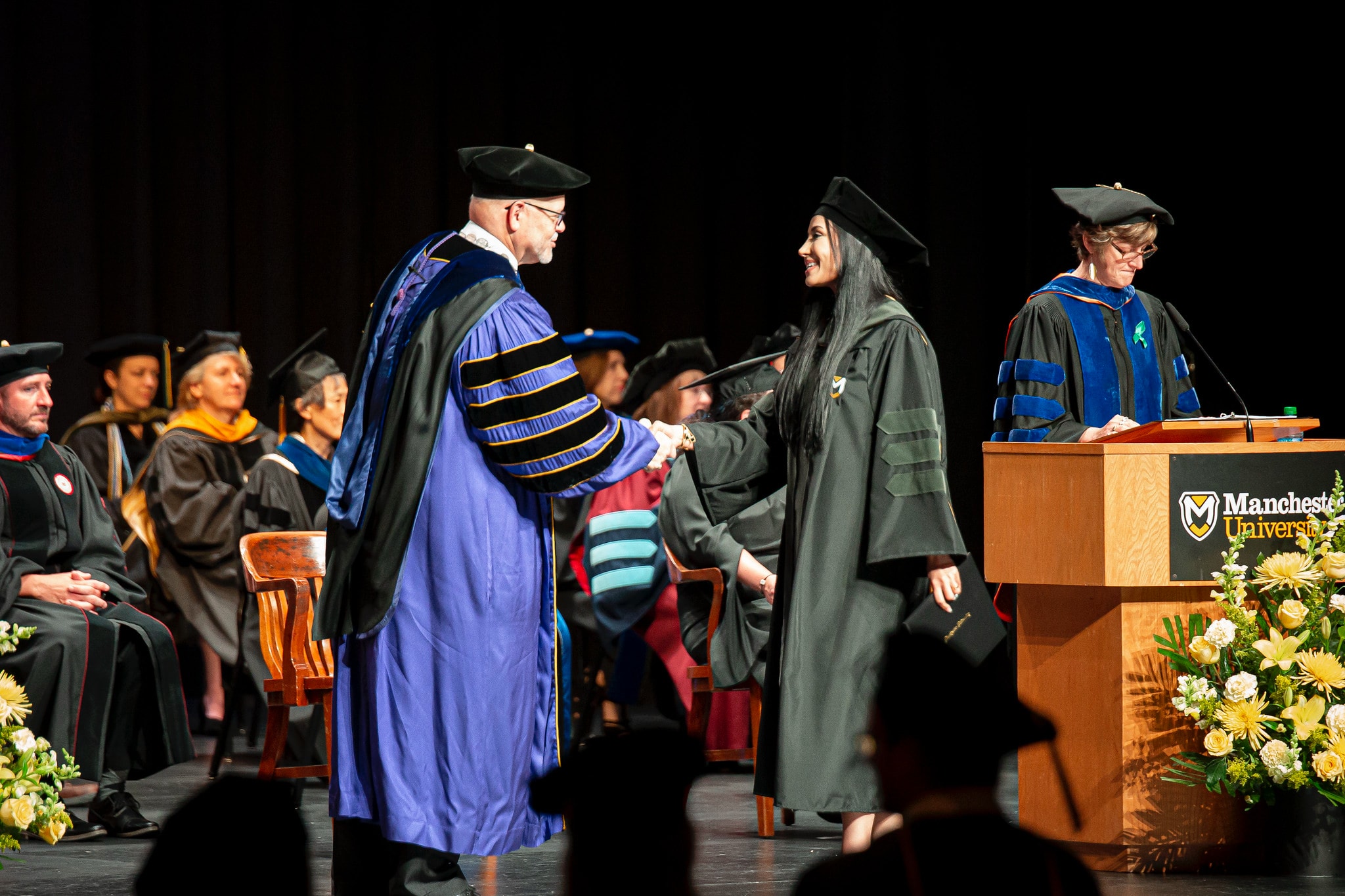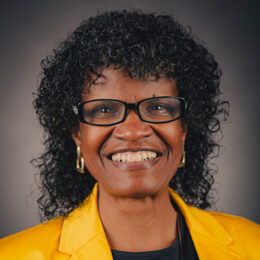Sociology
Discover how relationships, institutions, and social systems shape human behavior with a bachelor degree in sociology from Manchester University. Develop critical thinking, data analysis, and interpersonal skills that prepare you for diverse careers—from social services to public policy—while gaining a deeper understanding of the world around you.

Shape Society with a Bachelor Degree in Sociology or Minor from Manchester University
At Manchester University, the bachelor degree in sociology and sociology minor offer students a transformative way to understand the world. Through rigorous sociology courses, you’ll examine how human behavior is shaped by institutions, cultures, and social structures. Whether you pursue the major or minor, this program equips you with valuable research skills, critical thinking abilities, and a deeper awareness of the forces influencing everyday life. Designed for students passionate about social justice, equity, and systemic change, the sociology program prepares graduates for meaningful roles in human services, education, advocacy, and beyond.
Program Information:
- 39 Credit Hours
Minor
- 18 Credit Hours
Location
- North Manchester
Why Choose MU for Sociology?

Faculty Committed to Social Justice
Real-World Application of Sociological Theory
Career-Ready Skills for Any Industry
What You Can Do with Your Bachelor’s Degree in Sociology
Policy Analyst
Influence public policy by interpreting social structures and trends.
Human Services Worker
Support individuals and families through community programs.
Criminologist or Probation Officer
Apply sociological understanding in public safety and justice systems.
Case Manager
Support clients in accessing social services and navigating complex systems.

Average Starting Salary for Sociology Degree Holders
Graduates with a bachelor degree in sociology typically earn starting salaries ranging from $45,000 to $60,000, depending on the industry and location. Entry-level roles in human services, nonprofit work, or research support often fall within this range. With experience or advanced education, salaries can grow significantly in fields like policy analysis, data research, and social program management. The sociology degree provides versatile, marketable skills that open doors to meaningful and upwardly mobile career paths.

How the Sociology Program Supports Your Growth
Experiential Learning and Research Opportunities
Sociology majors at Manchester engage in hands-on learning that connects classroom theory to real-world practice. Students design and conduct original research, analyze policy, and participate in service-based learning that addresses current social challenges.
Experiential learning opportunities include:
- Community-based research on inequality, healthcare, or education
- Applied coursework involving policy evaluation or organizational analysis
- Capstone projects that focus on theory-based intervention strategies
- Presenting research at academic conferences or campus symposia
These experiences help students develop transferable skills in data interpretation, communication, and cross-cultural awareness, equipping them for professional environments and graduate-level academic work.
Student Groups and Campus Involvement
Other involvement opportunities include:
- Joining diversity and inclusion initiatives across campus
- Contributing to peace and justice advocacy through interdisciplinary groups
- Participating in peer mentorship or campus wellness programming
- Attending workshops focused on social identity, leadership, and advocacy
These groups create a sense of belonging and offer valuable leadership and networking opportunities for sociology majors pursuing impactful careers.
Interdisciplinary Opportunities: Social Work and Human Services
Social Work: Manchester’s Social Work Program is fully accredited by the Council on Social Work Education (CSWE), ensuring a curriculum that meets national standards for licensure and graduate school eligibility. Students are prepared for direct service roles and leadership in advocacy, counseling, and community engagement.
Human Services Minor: Ideal for students majoring in sociology, psychology, peace studies, or education, the Human Services minor equips students for work in nonprofit, public, and private agencies. With courses in sociology, social work, and peace studies—and a 120-hour practicum—it emphasizes practical skills for helping people meet essential needs.
Together, these options allow sociology students to deepen their understanding of social structures while gaining experience and credentials to launch careers in human services, advocacy, and systems change.
Meet the Faculty
FAQs About Manchester University’s Sociology Degree
What can I do with a bachelor degree in sociology?
Because sociology programs emphasize understanding social institutions, human behavior, and social structures, graduates are well-positioned for public service and community engagement roles. Others choose to pursue graduate school in sociology, public health, social work, or law to expand their impact. Employers increasingly value professionals who understand the social dynamics that shape our modern world, and sociology graduates bring this expertise to roles in public policy, community organizations, and economic development. Whether your goal is to conduct sociological research, promote social justice, or support individuals in need, the sociology degree provides the tools to pursue careers that make a real difference in society.
What will I study in sociology courses at Manchester University?
Manchester’s curriculum encourages sociology majors to apply theory to practice. Students develop strong communication skills, conduct original research, and gain exposure to applied sociology through service-learning and internships. These opportunities support the growth of analytical and problem-solving abilities that transfer across sectors like education, policy, and public health. By understanding social structures and evaluating real-world issues through a sociological lens, students learn how to become change agents in the modern world. Every course is designed to foster critical thinking, preparing students to succeed in graduate school, advocacy, and public service.
Is hands-on experience included in the sociology major?
This hands-on approach reinforces classroom learning by connecting sociological theory with real-life application. Through these experiences, students develop essential research skills, deepen their understanding of human behavior, and enhance their readiness for both the workplace and graduate program applications. Sociology majors leave the program not only with strong academic preparation but also with practical knowledge in social behavior, ethics, and the challenges facing global communities. Whether working with government agencies, healthcare providers, or community organizations, students are equipped to create solutions rooted in the sociological imagination and supported by evidence-based analysis.
How is sociology different from other social science majors?
At Manchester University, sociology students learn to evaluate these forces using sociological theory, comparing theoretical perspectives across time and culture. This broad lens makes the sociology degree highly adaptable. It integrates well with disciplines like criminal justice, peace studies, and public service, encouraging interdisciplinary learning and real-world impact. Graduates leave with a well-rounded understanding of human interaction, systems of power, and the socially constructed nature of reality—skills that are increasingly sought in today’s interconnected and rapidly changing world.
Can I combine sociology with another major or minor?
By combining programs, students expand their knowledge of human behavior, enhance their data analysis and communication skills, and broaden their career paths. Whether students want to attend graduate school, become educators, or work in government agencies, interdisciplinary learning provides the depth and flexibility needed for success. Academic advisors help each student develop a personalized plan that aligns with their professional goals and maximizes the impact of their bachelor’s degree.
Sociology Learning Outcomes
Program Learning Outcomes
Student Learning Outcomes:
- Analyze and interpret sociological concepts and theories applying them to situations to explain social behavior and patterns.
- Compare and contrast the sociological perspective from different social science approaches and theories to address issues.
- Develop one’s own sociological perspective demonstrating an understanding of their roles and influence on society.
2. Utilize critical thinking skills to build arguments, evaluate social programs, and analyze information.
Student Learning Outcomes:
- Evaluate sociological theories and methodologies to explain their roles in ethically building sociological knowledge.
- Compare and contrast root social theoretical orientations
- Design and conduct independent research that builds theory, tests assumptions, and/or evaluates practical policies or social programs
3. Demonstrate critical awareness of diversity and social inequality and how they affect how the society functions and is experienced.
Student Learning Outcomes:
- Demonstrate the significance of diversity (race, ethnicity, class, gender, sexual orientation, age, etc.) to understanding social realities.
- Defend the social, economic, political, and moral importance of reducing the negative effects of social inequalities to promote the value of the infinite worth of individuals in society
Non-Discrimination in the Admission Process
Manchester University is committed to non-discrimination in campus life. The University does not discriminate on the basis of national origin, ancestry, race, color, age, sex, gender identity or expression, sexual orientation, familial status, religion, disability or veteran status in admissions or any area of campus life, including its educational programs, scholarships and loan awards, residence life programs, athletic programs, extracurricular programs, promotion and tenure policies and practice, and alumni affairs.
Manchester University is committed to carry out the provisions of Section 504 of the Rehabilitation Act of 1973 and the Americans With Disabilities Act, which provide for accessibility of University programs to the physically disabled.









